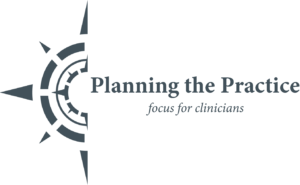
What Is Imposter Syndrome?

Who hasn’t at some time, or another felt like a fraud? From time to time, I still struggle with the notion that others will see me as incapable or unsuccessful. No matter how much education, training, or experience I have, there are moments when I have questioned my own abilities. I wonder whether others will see me as an imposter.
Imposter syndrome is essentially when you doubt your ability to perform in a role or feeling like a pretender. In this article, imposter syndrome is defined as “an internal experience of believing you are not as competent as others perceive you to be”.
Imposter syndrome is not an actual diagnosis one might receive from a therapist. However, therapists often treat the associated symptoms of anxiety and dysfunctional behaviors.
One of the most effective therapies for treating anxiety and negative beliefs is Cognitive Behavioral Therapy (CBT) developed by Aaron Beck. The simplest way I can describe CBT is that faulty beliefs and negative thoughts and emotions are challenged and then reframed in ways that are more functional. For example, a faulty belief may be “I am not worthy of love”. CBT would attempt to help a person locate evidence contrary to the belief then use that evidence to reframe negative thoughts and emotions to form a new belief of “I am worthy of love”. Sounds simple but it is quite complex and challenging.
I have mentioned the importance of mindset in a previous post. CBT and growth mindset overlap in my view. Clearly, some of the challenges a person with a fixed mindset faces are similar to the concept of imposter syndrome.
Carol Dweck, in her book Mindset, proposes that a person is not permanently either fixed or growth mindset, rather portions of their life fall somewhere on a continuum. For example, when it comes to writing, I feel much closer to a growth mindset. I can become better at writing. On the other hand, I am much closer to a fixed mindset, on the continuum, when it comes to public speaking. I have never felt really confident in myself when it comes to public speaking.
I once worked for someone (more like several someone’s) who in all ways possible was the worst employer and boss. I had been invited to give a talk at a meeting. I was incredibly nervous as it was my first time doing so in front of a number of people, I felt were important. As I recall that experience, I performed horribly. When I asked for feedback, my boss said I did horrible. Honestly, receiving negative feedback can be good and part of a growth mindset. But in this case, my boss never gave me anything to work on. It was just a horrible talk. Meaning I was horrible at public speaking.
It has been some twenty years since that experience and every time I get on stage or in front of a group of people that feeling that I am horrible at public speaking rises up. Sometimes I am able to overcome it and feel like I can perform well and/or learn from my performance (growth mindset). At other times my imposter syndrome anxiety gets the better of me and I don’t need anyone to tell me my performance was sub-par.
If you are struggling with imposter syndrome first, work on identifying whether you are closer to having a fixed mindset or a growth mindset in that area of your life. People with a fixed mindset often avoid challenges, give up easily, see effort as fruitless, ignore useful negative feedback, and feel threatened by others’ success.
If you are operating in the realm of the fixed mindset, next, identify a belief you have about yourself as it relates to one of the ways fixed mindset people often behave. Remember, for me, it is that I am not a good public speaker. Notice the language I am using to describe myself. I am portraying an interpretation of something I believe about myself.
When I am invited to give a talk, if I am not careful, my negative core belief takes over and I find myself operating in a fixed mindset by avoiding or turning down the invitation. My negative core belief supports my negative thinking that I may never be a good public speaker and leads to behavior that then supports the belief; not practicing my speaking skills. This entire process can become recursive and self-fulfilling keep me in a fixed mindset.
But because I know this about myself, I can do something about it. After identifying and understanding more about my mindset and negative belief, I can turn to identify evidence to the contrary. For example, I can list times where I have received unsolicited positive feedback from people who do not know me about a talk I gave. With this information, I can update my negative core belief to something more benign, like, “I can learn to be a better public speaker”. A statement like this also puts me closer to the growth mindset.
I can tell you from experience it takes time to overcome negative beliefs about oneself. Especially when those negative beliefs were born from the information you received from someone close to you. I can also tell you, from experience, with effort you can overcome negative core beliefs that support any struggle you have with imposter syndrome.
Do you or have you struggled with imposter syndrome? Head over to our Facebook Page and let us know how you were able to overcome!